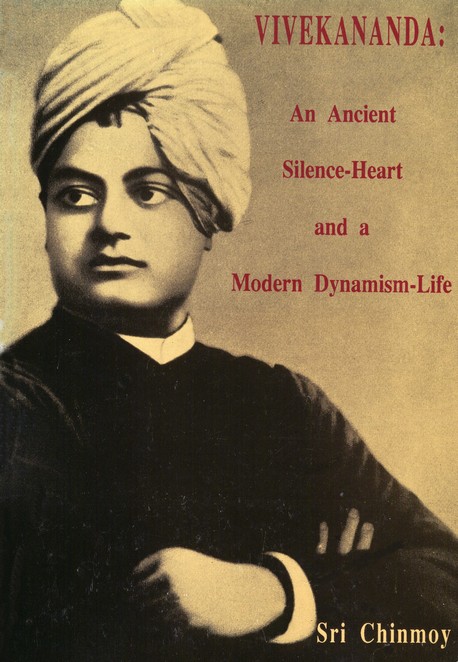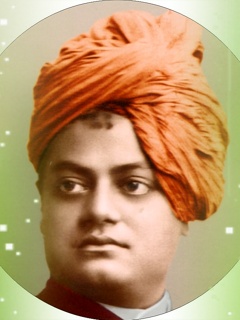In 1893, the city of Chicago was host to a rainbow gathering of representatives from the world’s great religions. They had come together in a spirit of oneness for the World’s Parliament of Religions. It was not the first such attempt to to encompass the universal spiritual aspirations of humanity, there having been precedents as early as the third century BC, when the Indian king Asoka invited one thousand scholars of all faiths to meet in Patna. Again, in the sixteenth century, the great Moghul emperor Akbar created a Hall of Worship in his palace at Fatehpur Sikri where debates were held between representatives of many faiths, including Christianity and Judaism.
However the World’s Parliament of Religions in 1893 was the first such endeavour in modern times to consider the truths which all faiths hold in common and to deepen mankind’s understanding of the unique worth of each. From India, a penniless monk received an inner message to come to America and participate in the conference. Bearing the ancient message of the Vedic seers, he was welcomed as a representative of Hinduism, the mother of all religions. This was Swami Vivekananda, whose presence and speeches were to profoundly inspire and illumine the entire gathering.
“Sisters and brothers of America,” he began in his opening address on September 11, 1893. The audience responded to his opening words with thunderous applause and it was several minutes before peace was restored. Swami Vivekananda then proceeded to declare to the world at large the supreme necessity for universal acceptance and tolerance. His superb command of the English language, his deeply resonant voice and his dignified bearing captivated the thousands who attended the Parliament each day and galvanised its participants with his soul-stirring words.

In 1993, the Parliament’s centenary, another great son of India was invited to participate and to offer the opening meditation. This was Sri Chinmoy, the spiritual master who had established a bi-weekly program of meditations for world peace at the UN headquarters in New York city, and in similar fashion brought the timeless wisdom-teachings of India to the West. In honor of Swami Vivekananda, Sri Chinmoy offered a published collection of stories, poems, essays and insights into the life of Vivekananda – the following few paragraphs are reproduced from “Vivekananda: An Ancient Silence-Heart and a Modern Dynamism-Life”, Sri Chinmoy’s wonderful tribute.
“Sri Ramakrishna’s unstinting Grace and Naren’s volcanic Will combined to create Vivekananda, who created a commotion all over the world. Vivekananda came into the world in an age seething with rank materialism. Spiritual values were at a discount. He held the mighty torch of spirituality high. Exceptional was his clarion call to lead the life of the Spirit. The soul-stirring message of Sri Ramakrishna was embodied in him, in this lion amongst men.
His was a life of unimaginable sacrifice. And how can India, his Motherland, dare to forget his message of stupendous sacrifice? “For my own part I will be incarnated two hundred times, if that is necessary to do what I have undertaken amongst my people.” At this Sri Ramakrishna, if he had heard his disciple, could have done nothing but clap and dance in supreme ecstasy. For it was this very Naren whose heart ached to remain always in samadhi and whom Sri Ramakrishna had to scold fondly by saying, “I thought you had been born for something greater, my boy!”
It was J.H. Wright, Professor of Greek at Harvard University, who was first in realising what Vivekananda was when the Indian monk was found, prior to becoming a delegate to the Parliament of Religions, almost destitute, no better than a street-beggar. Verily, Professor Wright, that blessed son of America, was a man of action. He introduced Vivekananda to the President of the ‘Parliament’ in Chicago. The professor’s flaming and instructive words have echoed and re-echoed in the hearts of both East and West: “To ask you, Swami, for your credentials is like asking the sun to state its right to shine.”
Vivekananda’s soul-stirring addresses inspired the audience to have faith in all the religions of the world, to hug the best in each religion. There was a magic spell of throbbing delight woven around his very name at the Parliament of Religions. He was the figure that dominated the world’s gaze there. A report appeared in the Boston Evening Transcript of September 30th, 1893, about the great triumph of the Indian spiritual giant: “If he merely crosses the Platform, he is applauded, and this marked approval of thousands he accepts in a childlike spirit of gratification, without a trace of conceit.”
The same paper on April 5th, 1894, had an irresistible recollection:
“At the Parliament of Religions, they used to keep Vivekananda until the end of the programme, to make people stay until the end of the session. On a warm day, when a prosy speaker talked too long and people began going home by hundreds, the Chairman would get up and announce that Swami Vivekananda would make a short address just before the benediction. Then he would have the peaceful hundreds perfectly in tether. The four thousand fanning people in the Hall of Columbus would sit smiling and expectant, waiting for an hour or two of other men’s speeches, to listen to Vivekananda for fifteen minutes.”
In no time America realised that Vivekananda was no isolated dreamer, nor, unlike most spiritual figures of the East, did he care primarily for his own personal salvation. They discovered in him a lofty spiritual realist and a universal lover of humanity. It was his vast personality and his spiritual inspiration that achieved for him such acclaim in America. Vivekananda’s credo was characterised by its freedom; thus the freedom-loving Americans responded enthusiastically to his message. They accepted his teaching that material prosperity and spiritual aspiration must run abreast and help each other if man is to see the full face of Divine Knowledge.
